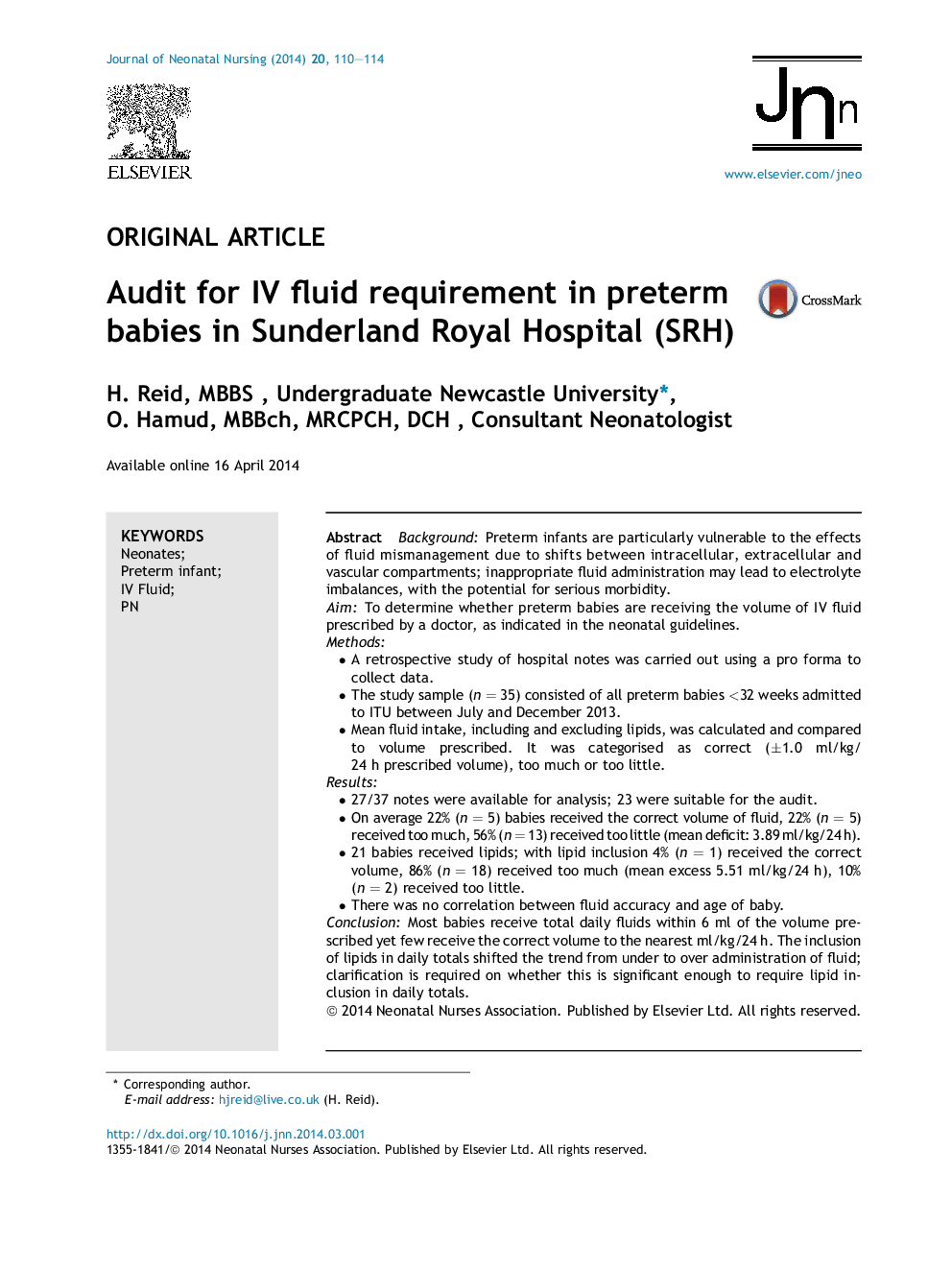| Article ID | Journal | Published Year | Pages | File Type |
|---|---|---|---|---|
| 2631358 | Journal of Neonatal Nursing | 2014 | 5 Pages |
BackgroundPreterm infants are particularly vulnerable to the effects of fluid mismanagement due to shifts between intracellular, extracellular and vascular compartments; inappropriate fluid administration may lead to electrolyte imbalances, with the potential for serious morbidity.AimTo determine whether preterm babies are receiving the volume of IV fluid prescribed by a doctor, as indicated in the neonatal guidelines.Methods•A retrospective study of hospital notes was carried out using a pro forma to collect data.•The study sample (n = 35) consisted of all preterm babies <32 weeks admitted to ITU between July and December 2013.•Mean fluid intake, including and excluding lipids, was calculated and compared to volume prescribed. It was categorised as correct (±1.0 ml/kg/24 h prescribed volume), too much or too little.Results•27/37 notes were available for analysis; 23 were suitable for the audit.•On average 22% (n = 5) babies received the correct volume of fluid, 22% (n = 5) received too much, 56% (n = 13) received too little (mean deficit: 3.89 ml/kg/24 h).•21 babies received lipids; with lipid inclusion 4% (n = 1) received the correct volume, 86% (n = 18) received too much (mean excess 5.51 ml/kg/24 h), 10% (n = 2) received too little.•There was no correlation between fluid accuracy and age of baby.ConclusionMost babies receive total daily fluids within 6 ml of the volume prescribed yet few receive the correct volume to the nearest ml/kg/24 h. The inclusion of lipids in daily totals shifted the trend from under to over administration of fluid; clarification is required on whether this is significant enough to require lipid inclusion in daily totals.
